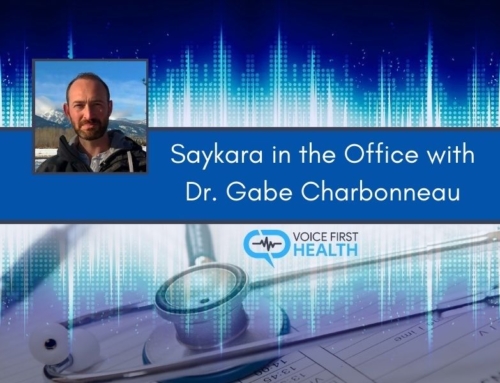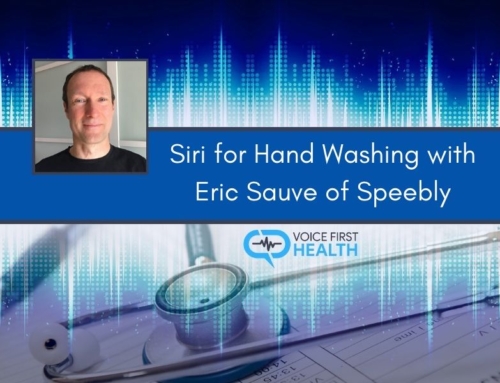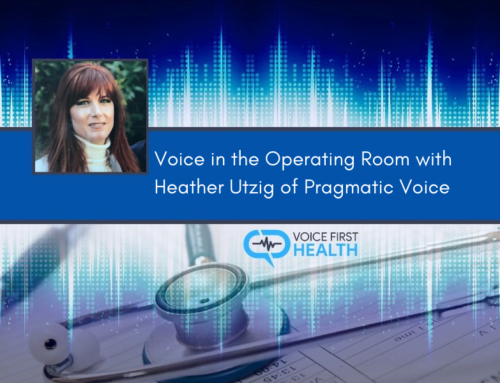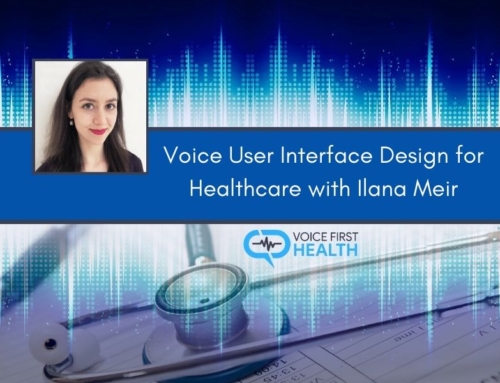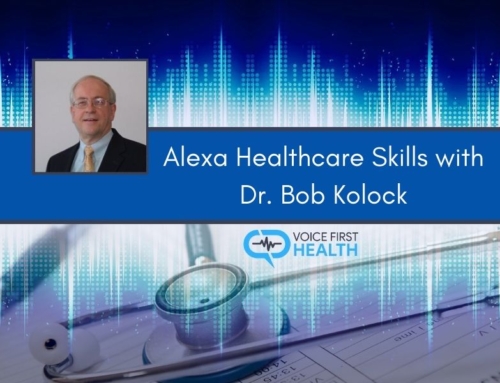VFH Episode 49
In this episode, Teri talks to doctors Matt Cybulsky and Reid Maclellan, who were both with him at the Voice of Healthcare Summit in Boston in the summer.
The three interviewed each other in more of like a fireside chat about the incredible things going on at the intersection of voice technology and healthcare, and in particular the great stuff that they heard when they were at the Voice of Healthcare Summit.
Matt Cybulsky is the founder and chief consultant of IONIA Healthcare Consulting, where they offer organizations with support addressing strategic and operational innovative projects. His expertise focuses on technology and healthcare delivery.
Reid Maclellan is a physician and adjunct professor at Harvard Medical School and Boston Children’s Hospital. He’s also an instructor of surgery at Harvard Medical School as well as the founder and CEO of Asclepius, an artificial intelligence company with the mission to restore the care in healthcare and improve quality of life for patients and physicians.
Key Points from the Discussion!
- Conversations at the Voice of Healthcare Summit around building applicable tools, ethics and privacy, and expanding tech for voice-first.
Key Takeaways from the Summit
- Compared to the summit in 2018, the number of people doing incredible things in the voice space and healthcare more than doubled. This is evidence that there is a lot of continuously increasing interest.
- The breadth of different speakers who were representing so many organizations also increased.
- There were so many different topics in voice and healthcare.
- We are going to see a skyrocket in wonderful applications that are going to assist physicians and patients in healthcare.
Tangible Builds for Voice
- There’s been excellent research in the integration of voice technology into EMRs.
- The idea of vocal biomarkers is a fascinating area with great potential.
- There are different voice applications, like from the Mayo Clinic, which has been growing their applications beyond just being informational skills to integrating patient care with voice technology.
Beyond Pilot Projects
- 2019 has been called the year of the pilot.
- Most revolutionary applications that could impact healthcare on a massive scale are still in pilot stage.
- Some of the organizations, hospitals, and clinicians that have their own pilot projects that they want to grow will need to hasten their efforts in coming out with tangible tools, because some of the larger firms with more capital will start introducing voice tools and interactive features that may be a little more advanced.
- One of the biggest barriers to launching health-oriented voice applications at scale has been the protection of users’ privacy. With the recent HIPAA Compliance for Alexa for certain institutions, we are going to see some of the healthcare applications come online.
- The Mayo Clinic has been giving patients a lot of information through voice applications.

AI in General
- A user can converse with an AI type bot in different ways.
- AI is not intelligent until the creator makes it that way. That’s why a lot of AI was originally formed based off of image pattern recognition because it was easy to give the computer a bunch of data (all the same images), and then a few that were different, for it to learn.
- With the advent of NLP (Natural Language Processing), AI can understand conversations and words.
- There will be a cultural change for physicians to really adopt conversational AI.
Notable Speakers at the Summit
- Nathan Treloar of Orbita is a heavyweight boxer in the voice first world. Orbita has tools that are tangible and being used in the market. They’ve been able to achieve great milestones.
- Stuart Patterson of LifePod opened people’s eyes in as far as what can be done in home health, keeping families informed about loved ones who are ill, care for the elderly, and so much more.
- Punit Soni of Suki talked about the concept of being able to utilize voice while you’re hands-on with the patient and not being distracted by the keyboard and screen.
- Bianca Phillips of e-Health Consultants talked about the ethics and law of voice technology in health.
- Other interesting speakers included Michael Antaran of CARROT Pass, Henry O’Connell of Canary Speech, Audrey Arbeeny of Audiobrain, and others.
Voice as a Potential Vital Sign
- There’s a study that was done by Mayo Clinic and BeyondVerbal to look at patients who were going in for a coronary angiogram and they had those patients read different statements. They then looked at the outcomes of the coronary angiograms and found a statistically significant correlation between the way someone speaks and the risk of coronary heart disease.
- They also did a study to look at people with congestive heart failure. They followed those people over time and had them read or describe an experience. They found a statistically significant correlation between the way someone spoke and the risk of death.





